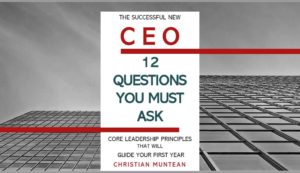Stop Leading Time-Wasting Meetings

 Summary: Know what you want.
Summary: Know what you want.
“I hate meetings, don’t you?” He asked this as we sat down for our meeting. Awkward.
Truth is, I don’t hate meetings. At least not as a general concept. I might fall out of love with a specific meeting. But not all meetings.
Meetings are where work gets done. If you are a leader, your most important work will involve meetings.
Leadership only happens in the context of other people. You can’t lead by yourself.
Leadership is about relationships. A leader has to be able to connect with other people to align them towards a shared vision. That’s basically what leadership does. And that mostly happens in meetings.
Meetings: They are where things get done….if you know what you want done.
Many years ago, I started getting invited to meetings I didn’t belong in and didn’t understand.
I would sit there and try to figure out why I have been invited. I’d ask a few questions because I was lost.
Finally, I asked my host, “Why do you invite me to these things?” I was told, “Because you ask good questions and help us make sense of what we are doing.”
Over time I learned you can make a pretty good living by being the dummy in the room and asking, “Help me understand what’s going on here?”
Giving Meetings the Credit They Deserve
Meetings should generate an ROI.
Many meetings don’t. In part, because no one knows what a return on the investment should look like.
But especially in the case of meeting with leaders in an organization, usually the highest earners, the meeting itself can easily cost thousands of dollars an hour just in payroll costs. I know that many of those high-earners would balk at cutting a check for that amount.
But they often have no problem letting the time waste away in meaningless meetings.
Don’t let your meetings be an expense. They should be an investment. And they are if they accomplish what they need to accomplish.
What Does This Meeting Need to Accomplish?
Meetings are used for tons of reasons: To share information, make decisions, address conflicts, create alignment, problem solve, celebrate, recognize, etc.
The simple trick to making any one of those meetings work well is to define, in advance, what you need that particular meeting to accomplish. Then design the meeting to accomplish that goal. Avoid doing other stuff in the same meeting.
Anyone who has asked me to help them with a meeting knows I’ll ask, “What do you need this meeting to accomplish?”
This usually stumps them for a bit. They kind of know what it should accomplish. But not specifically.
For meetings where there are decisions to be made or conflicts to be resolved, I’ll ask, “What is the most important question that we need to answer during this meeting?”
With some clients, we spend as much time defining the question as we do in the actual meeting. And that is a fantastic use of time.
Why? Because a meeting with a single, meaningful objective is a meeting that produces results.
Fix Your Meetings
Plan the meeting in advance: Define the purpose of the meeting. Then ensure that the right people will be there. Finally, structure the meeting to accomplish the purpose.
Define the question: When I lead problem-solving or decision-making meetings, I always bring a defined question to the meeting.
Then I ask the room if they agree that this is the right question. Sometimes it needs tinkering to get it right. The agreement ensures alignment.
A clearly defined purpose or question provides focus for everyone.
If you are leading a different kind of meeting – say making an announcement or introducing a change – the question may simply be your ask – what is it that you need or want people to do as a result of the information you’ve given them.
Listen carefully: Frustrating meetings are often the result of people talking past each other on related but not the same topic. As a result, they can become enormously confusing as well.
If a new topic starts to emerge – I’ll often ask about it. Sometimes I’ll paraphrase what I think I’m hearing. It doesn’t matter if I’m right or not – people will correct me. And that’s what I’m looking for. For people to clarify what it is they were talking about.
If a new topic has emerged, I’ll ask if it relates to the core question or topic that needs to be answered. If it doesn’t, I’ll ask or suggest that we set the topic aside to come back to later. People will usually agree to that.
Clarify what was concluded and what the next steps are. If relevant, assign responsibilities. Another major area where meetings lose value is that no one summarizes what was accomplished or agreed on – and what will happen next. Do so, and your meetings will become momentum builders instead of time wasters.
There is lots more – but knowing what you want is the main thing
Leading or facilitating highly productive meetings is an involved skill that takes years to master. But if you only learn one skill it should be this:
Tightly clarify what you need a meeting to accomplish. Then structure the meeting to do just that. Listen carefully to ensure the meeting is on track. Then summarize what was accomplished at the end.
This simple ability will radically transform your meetings.
Take good care,
Christian
Are you interested in learning more about becoming a successful CEO? If so, get a free copy of my book The Successful New CEO. Not a new CEO? I’ve been told by “old hands” that they felt any CEO should read this. So, click here to get your copy today.
by “old hands” that they felt any CEO should read this. So, click here to get your copy today.
Let’s connect.
I’m passionate about helping leaders to create workplaces they love going to and increasing the value of the services they offer. My results-oriented approach is tailored to each client’s specific situation and needs. As a leadership coach, I have developed a wealth of resources to help you and your team grow and become stronger.
Weekly Newsletter – sign up to receive my weekly articles addressing critical leadership challenges and issues.
The Leadership Coach Podcast – In my podcast, we explore effective, high-impact, and enjoyable leadership. Subscribe.
Resources – Visit my website’s Resources page for e-books, webinars, training, and leadership coaching opportunities for you and your team.
There are 𝟭𝟮 𝗰𝗿𝗶𝘁𝗶𝗰𝗮𝗹 𝗾𝘂𝗲𝘀𝘁𝗶𝗼𝗻𝘀 to ask before accepting a new CEO position. Do you know what they are? Instantly download my free e-book here.
Find the value of your company with my free assessment tool: The Value Builder System
The Value Builder System™ is a 13-minute online questionnaire that evaluates your business on the eight factors that contribute more to its attractiveness and value. These factors are scored on a scale of 1-100. Businesses that score over 80 are likely to command 70%-100% higher value than others.
Opportunities
Free Resource: How To Accomplish More Without Doing More is a workbook I created to walk leaders through a process of helping you own your calendar, liberate your time, and still get more done. Download it for free!
Executive and Leadership Coaching: Do you feel overwhelmed? Are you not getting the results you expect from the effort you are putting in? Do you find yourself facing similar challenges time and time again? Would you like to change specific ways of relating or reacting? If you would like to experience predictable, measurable growth Contact me.
Profitable Exit Strategy Workshop: Are you a business owner or partner? Over 55? Starting to think about exiting your business or active management in the next 3-5 years?
- Curious about what your business might be worth?
- Would you like to discover the specific steps you need to take to increase its value and become highly attractive to a buyer?
- Are you planning on handing it over to family or employees and you want to ensure long-term success?
If so, contact me now
Categories
Get Christian’s Newest Book: Train to Lead

Download my free 10-page eBook:
How To Accomplish More Without Doing More:
Eight Proven Strategies To Change Your Life
Discover how to save eight hours during your workweek-even if you're too busy to even think about it. The resource every maxed out executive needs.

